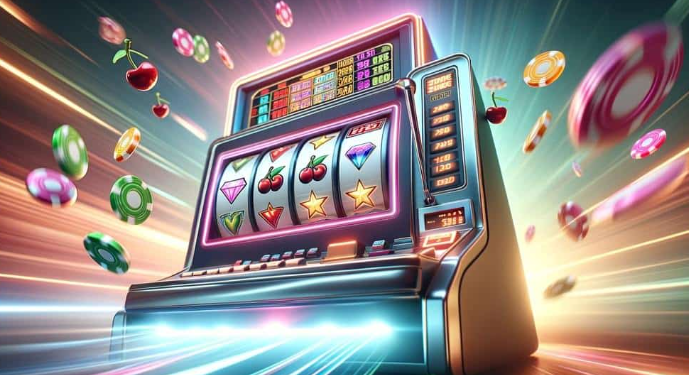Online slot games have become a staple of digital entertainment, offering players a chance to win big while indulging in thrilling gameplay. But what goes into creating these captivating games from scratch? Let’s take a fascinating journey through the process of developing an online slot game, from its inception to being player-ready.
Conceptualization and Theme Selection
The journey begins with a spark of creativity. Game developers brainstorm ideas for themes that will resonate with players and keep them engaged. Themes can range from ancient civilizations and mythical creatures to modern pop culture references. The goal is to create a concept that will capture the imagination and evoke excitement.
Game Design and Mechanics
Once the theme is chosen, designers begin crafting the game’s visual elements and mechanics. This involves creating eye-catching graphics, animations, and sound effects that bring the theme to life. At the same time, developers work on the game’s mechanics, including the number of reels, paylines, and bonus features. The goal is to strike a balance between simplicity and complexity, ensuring that the game is easy to understand yet offers plenty of excitement.
Mathematics and RNG Implementation
Behind the scenes, mathematicians and programmers are hard at work ensuring that the game is fair and balanced. They use complex algorithms to determine the game’s Return to Player (RTP) percentage, which represents the average amount of money returned to players over time. Additionally, they implement Random Number Generators (RNGs) to ensure that each spin is random and independent of previous spins, maintaining the integrity of the game.
Testing and Quality Assurance
Before the game is released to the public, it undergoes rigorous testing and quality assurance processes. Testers play the game extensively, looking for any bugs, glitches, or inconsistencies. They also provide feedback on gameplay mechanics, graphics, and overall user experience. Developers use this feedback to make necessary adjustments and improvements, ensuring that the final product meets the highest standards of quality.
Regulatory Compliance and Certification
In many jurisdictions, online slot games are subject to strict regulations and must be certified for fairness and security. Developers work closely with regulatory bodies to ensure that their games comply with all legal requirements. This may involve submitting detailed documentation, undergoing independent audits, and obtaining necessary licenses. Once the game is certified, it can be released to the public with confidence.
Deployment and Distribution
With the game complete and certified, it’s time for deployment and distribution. Developers partner with online casinos and gaming platforms to make their game available to players. This may involve negotiating distribution deals, integrating the game into existing platforms, and marketing it to the target audience. The goal is to maximize exposure and reach as many players as possible.
Player Feedback and Iteration
Even after the game is released, the journey is far from over. Developers closely monitor player feedback and analytics, looking for ways to improve the game and enhance the player experience. This may involve releasing updates with new features, fixing bugs, or optimizing performance. By listening to their players and continuously iterating on their games, developers ensure that their creations remain fresh and engaging for years to come.
Conclusion
Creating an online slot game is a complex and multifaceted process that requires creativity, technical expertise, and attention to detail. From the initial concept to the final release, developers invest countless hours and resources to bring their vision to life. But the end result is worth it: a thrilling and immersive gaming experience that captivates players and keeps them coming back for more.
















